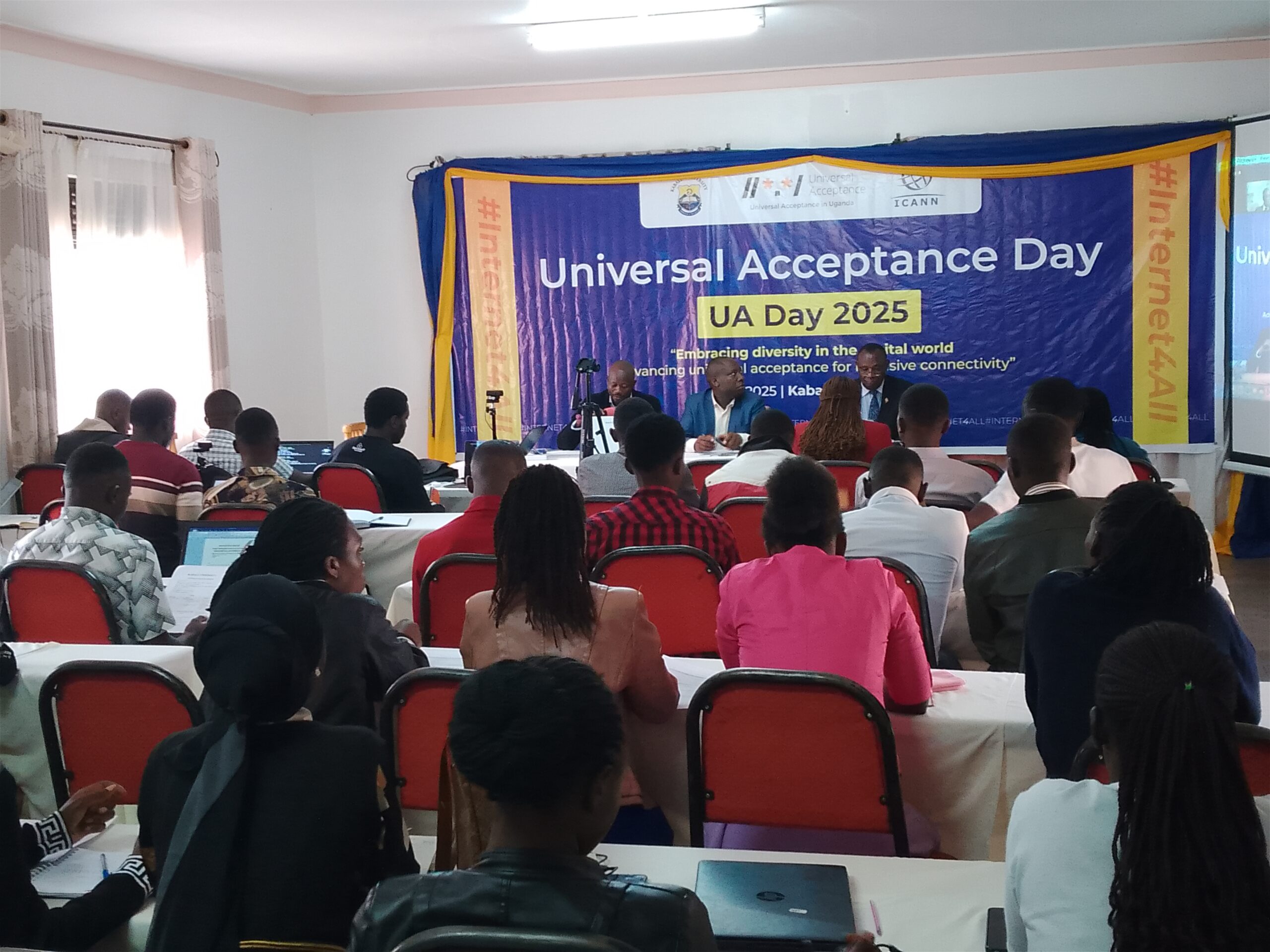KABALE, UGANDA – Members of the academia from Kabale University in southwestern Uganda have called on internet developers to provide recognition for more native languages, in order to enhance the application of digital technologies in solving global problems.
The call was made during the commemoration of Universal Acceptance Day, celebrated annually on March 28, to promote digital inclusivity.
Kabale University, with support from the Internet Corporation for Assigned Names and Numbers (ICANN), hosted the event for the second consecutive year. The event featured discussions and technical trainings on creating domain names and email addresses that are universally recognized by the internet.
The 2025 Universal Acceptance Day was commemorated under the theme “Connecting the Unconnected: Building a Multilingual Internet.”
Speaking on behalf of the Vice Chancellor, Prof. Sabiti Makara from the Department of Governance at Kabale University, expressed concern that despite the internet being the cheapest and quickest means of global communication, only a few international languages were accommodated, leaving millions of people who can only speak or write their mother tongues excluded.

“Recent statistics show that the top languages used on the internet are English, Chinese, Spanish, Arabic, Indonesian/Malaysian, Portuguese, French, Japanese, Russian, and German. Where does this leave people who can’t speak these languages?” he asked.
Prof. Makara advocated for the recognition of more ethnic languages to benefit those who do not understand international languages. He cited the example of the Batwa, an indigenous ethnic group in southwestern Uganda, who are traditionally fruit gatherers and would market their fruits online if language wasn’t a barrier.
CUE IN…PROF. MAKARA
Assoc. Prof. Francis Akena Adyanga, Dean of the Faculty of Education at Kabale University, blamed the challenge on colonial times when Western governments imposed their languages on countries under their rule.
He noted that East African countries abandoned their indigenous languages, embracing English or French as a major medium of communication, resulting in internet developers giving less consideration to local languages.

However, Akena commended international organizations like ICANN for initiating efforts to ensure the internet recognizes more languages for improved digital inclusivity.
CUE IN… PROF. AKENA
Cephas Nzana and Irad Arinda, both computer science students at Kabale University, called for more decentralized internet infrastructure, accessibility to software that enables website creation, and policies enforcing the use of universally acceptable domain names and email addresses, both internationally and nationally, to reduce the digital divide.
CUE IN… STUDENTS

